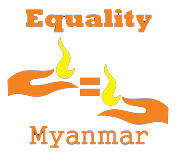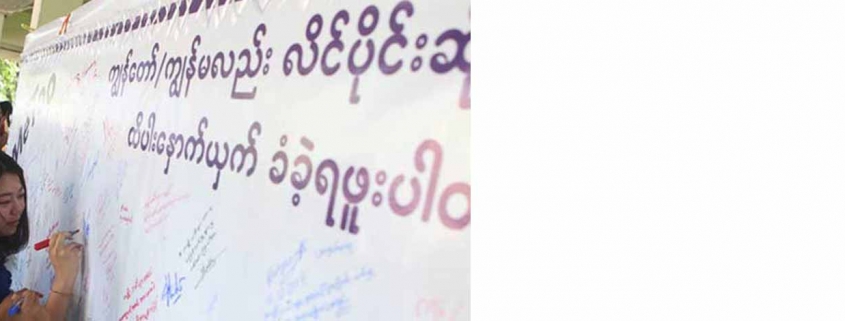By SAN YAMIN AUNG 17 July 2018
YANGON—Myanmar’s leading women’s rights advocacy network has declared its support for three women who came forward on social media last week to accuse the head of one of its member organizations, a local human rights and women’s empowerment NGO, of sexual harassment and sexual assault.
The Gender Equality Network (GEN)—a network of more than 100 local and international NGOs and civil society organizations—vowed to help the women seek justice.
GEN said it had received a letter of complaint alleging that a senior figure at one of its member organizations had engaged in sexual harassment and assault, as well as exploitative behavior toward staff, and of abusing their authority. It did not name the organization or the accused in the statement.
“GEN condemns any member or employee who commits or enables any violations of human rights, women’s rights, and the rights of minorities,” it said in a statement released on Monday, adding that the truth would be exposed and the necessary action taken.
U Aung Myo Min, a member of GEN’s steering committee, told The Irrawaddy that the cases were reported by three female former employees of the accused person’s organization.
He confirmed that the complainants are the same women who recently shared their ordeals on Facebook.
He said his organization planned to meet with the women and would support them, respecting their wishes and decisions without any bias, whether they sought legal action or an apology.
The case came to light on July 12, when a woman started speaking out about sexual assaults that she and her female colleagues had been subjected to at their office, and sharing their stories on her Facebook account.
She said they were sexually harassed by the chief executive officer of the organization they worked for. She said he touched, hugged, tickled and sometimes even picked up in his arms or jumped over female staff, ignoring their demands that he stop.
After the first woman shared her story, a second posted about the harassment that she had faced. She later posted about another female employee who had experienced attempted rape.
One of the three women told The Irrawaddy on Tuesday that some women at the organization who experienced harassment had reported their cases to other managers, but their complaints were quickly disposed of and not followed up.
Far from having their complaints addressed, those who made them found themselves isolated in the office and were later pressured to resign, she said.
She said she and her colleagues were going public with their stories in order to encourage other victims to speak out as well as to highlight the sexual harassment that women have long faced in the workplace.
“I also want donor organizations to check the agencies they are funding to ensure they have anti-sexual harassment policies in place,” she said, adding that organizations that had donated funds to her former employer had been notified.
U Aung Myo Min of GEN said the case highlighted the need for organizations to adopt sexual harassment policies for staff and to put a complaints procedure in place.
“Sexual harassment cases can be tricky and hard to prove. But that shouldn’t prevent victims from making complaints or cause them to let their cases be dismissed. The victims know best whether they are victims of sexual exploitation,” he said.
The activist added that victims of sexual harassment and assault should be encouraged to make complaints. Thus, every organization needs to have a complaints procedure and a policy that ensures action is taken against the perpetrators of such acts — especially at organizations working in the human rights and gender equality sectors.


 Equality Myanmar (EQMM) is a leading nongovernmental organization that organises a wide range of human rights education and advocacy programs, the documentation human rights violations, and provides emergency support for activists, human rights defenders, and their families. We work with a range of local civil society organizations, educators, activists, various local actors, and our programs and activities reach all states and regions in Myanmar.
Equality Myanmar (EQMM) is a leading nongovernmental organization that organises a wide range of human rights education and advocacy programs, the documentation human rights violations, and provides emergency support for activists, human rights defenders, and their families. We work with a range of local civil society organizations, educators, activists, various local actors, and our programs and activities reach all states and regions in Myanmar.